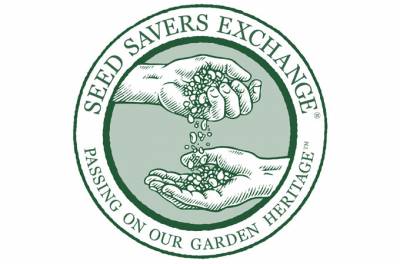
Search online for a seed swap or exchange near you a little detective work is sure to pay off. They come and go but the unstoppable trend is for more of them. There are thousands of local seed swaps around the globe.

Plants are usually swapped alongside the seeds. Events are steadily increasing in popularity as interest in growing food grows like the crops we aspire to harvest. Seed swaps are just that – a venue where gardeners can meet and swap seeds. Seed swaps are a popular way to exchange seeds and meet other gardeners 2. Search for a seed library near you and see what you can find. Simple weatherproof boxes are stocked with season-appropriate seeds, complete with growing instructions. One example is the three seed libraries launched by the Alameda Backyard Growers in the San Francisco Bay Area of California.

Quite a few seed libraries have sprouted up during the pandemic. Well-organized groups such as the Up Beet! community of seed libraries pool resources and share expertise with anyone looking to run their own seed library. Seed libraries are a pretty big deal in the US. Take what you need, then pay back with your own saved seeds once you are in a position to return the favor. Keen gardeners have the opportunity to share their abundance, while those new to gardening can seek out something special. Set up in public places such as libraries and community centers, they help to spread the joy of growing food (and other plants), while potentially serving as repositories for precious local varieties ideally suited to the surrounding climate and soil.Ĭarefully saved seed is the name of the game, but other seeds – donated by generous seed companies, for example – might also be offered. Seed libraries are local resources where gardeners can seek out seeds for very little or nothing at all. Who said libraries were just for books? 1. Seed libraries, swaps and exchanges are your ticket to a prudent plot. Fortunately there are other ways to pick seeds up, often for free, or at most a nominal fee. Gardening catalogs offer an Aladdin’s cave of horticultural riches but the price of packets of seeds quickly adds up. Seeds are, of course, central to a thriving vegetable garden. Another is the disruption to the food supply witnessed early on in the pandemic, when shelves were stripped of essentials such as fresh fruits and vegetables (and toilet paper!). It’s one of the reasons we have seen such a surge in interest from those looking to grow more of their own food. The situation has only deteriorated since then.

The Trussell Trust, which supports a UK-wide network of food banks, estimates that half of those who used a food bank at the start of the pandemic had never done so before. Job insecurity and loss of income are putting pressure on food banks as more and more people struggle to make ends meet. The ongoing pandemic is fueling enormous uncertainty.


 0 kommentar(er)
0 kommentar(er)
